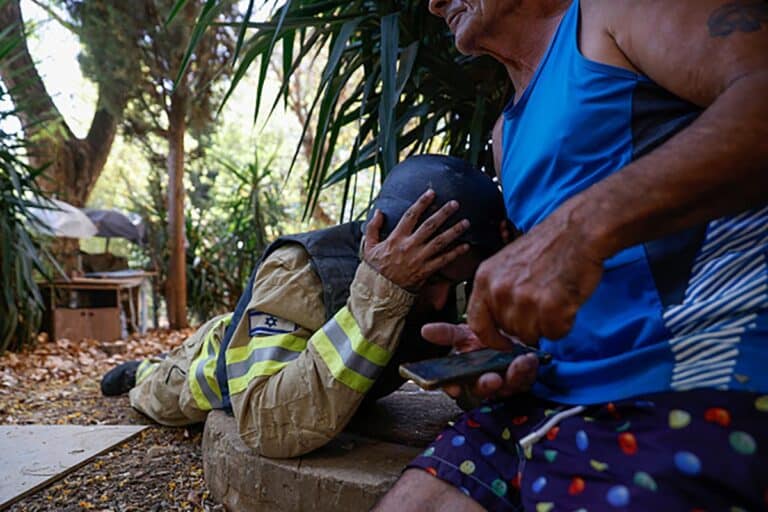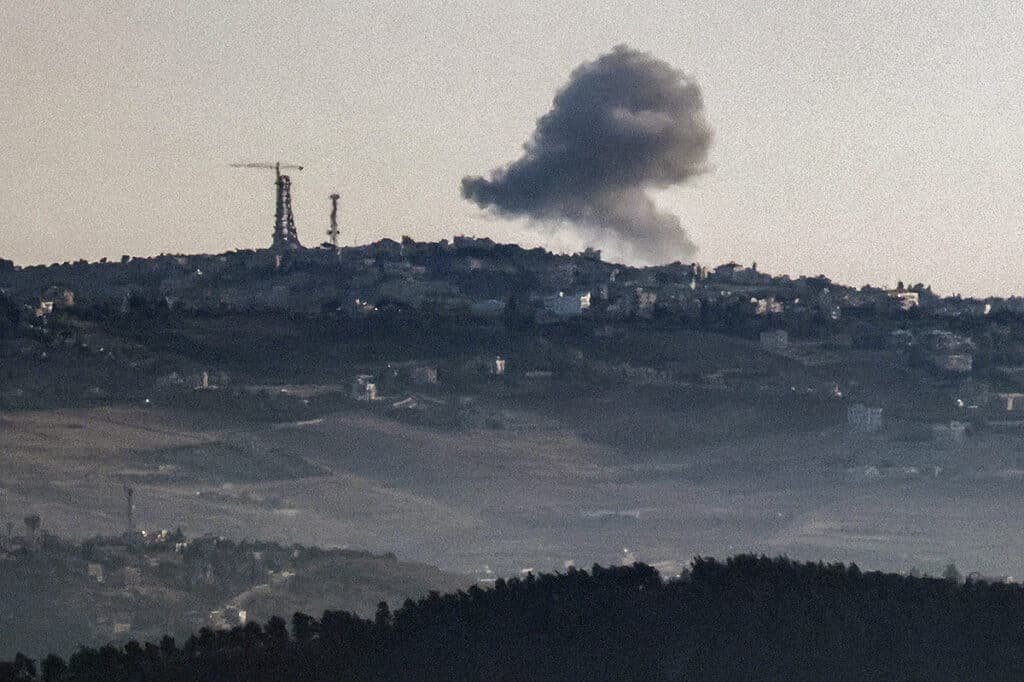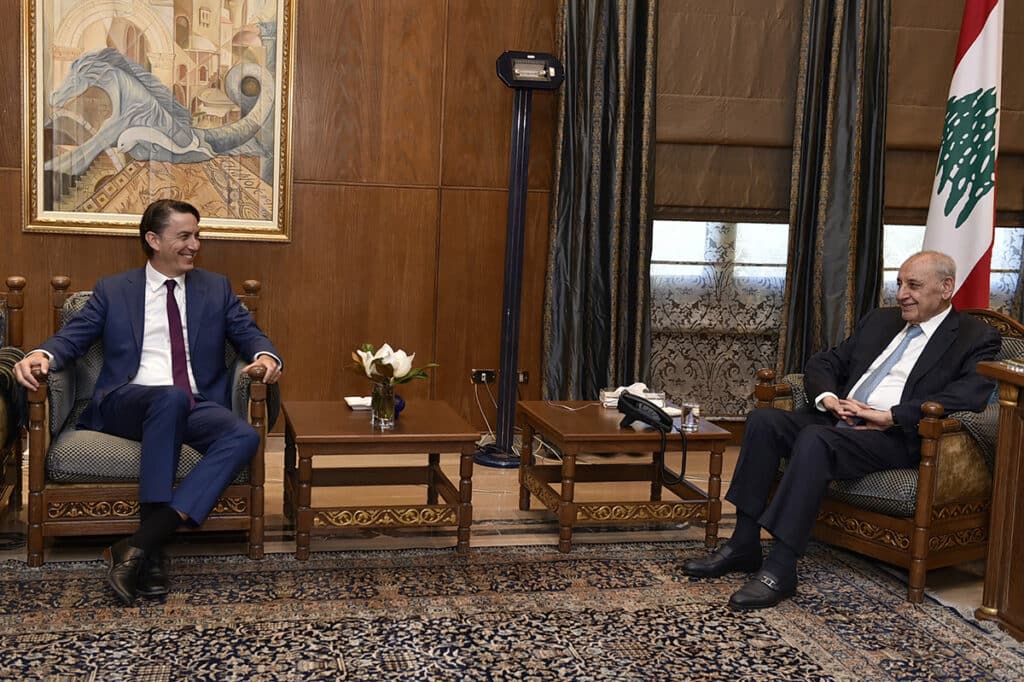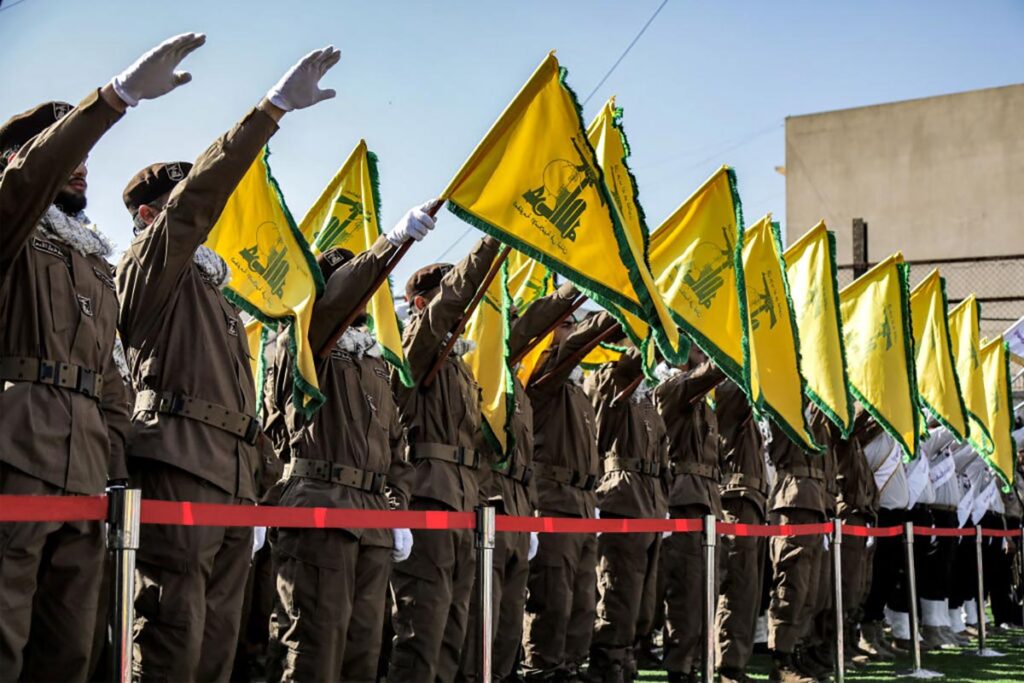
After eight months of clashes, the fight between Hezbollah and Israel has begun escalating rapidly. Hezbollah is now launching dozens, and sometimes even hundreds, of rockets and drones toward Israel on a daily basis, and Israel is striking deeper into Lebanon, targeting leading commanders in Hezbollah.
Read more: What is Hezbollah?

The U.S., France, and other world powers have attempted to prevent a further escalation, but so far all those efforts have failed.
Clashes escalating between Hezbollah and Israel
Since Oct. 8, Hezbollah has targeted northern Israel with over 5,000 rockets, anti-tank missiles, and Kamikaze drones. Israel has responded by destroying Hezbollah bases, rocket launchers, and commanders.
This back and forth has continued on an almost daily basis over the last eight months.
However, in recent weeks, the fighting has intensified. Hezbollah has launched rockets and drones deeper into Israel and caused heavy damage along the border, sparking massive wildfires.
IDF Spokesperson Daniel Hagari warned Sunday that “Hezbollah’s increasing aggression is bringing us to the brink of what could be a wider escalation — one that could have devastating consequences for Lebanon and the entire region.”
A ‘last attempt’ at peace
On Tuesday, U.S. special envoy Amos Hochstein — who was central in the agreement setting the once-disputed maritime border between Israel and Lebanon — met with Lebanese leaders in an effort to prevent a larger war. Hochstein pushed for the acceptance of a peace plan proposed by U.S. President Joe Biden, which would also lead to the end of the war in Gaza.
“The conflict along the Blue Line between Israel and Hezbollah has gone on for long enough. Innocent people are dying. Property is damaged. Families are shattered, and the Lebanese economy continues to decline. The country is suffering for no good reason. It’s in everyone’s interest to resolve it quickly and diplomatically. That is both achievable and it is urgent,” Hochstein said.

Some Lebanese and Kuwaiti media reports called Hochstein’s trip the “last attempt” to prevent a war, claiming that he carried “serious threats” from Israel and told Lebanese officials that “time is running out.”
Part of the urgency stems from the imminent conclusion of Israel’s operation in Rafah, the last major Hamas stronghold in Gaza. When this happens, Israel likely could turn its attention to Hezbollah in Lebanon.
Meanwhile, Hochstein’s efforts didn’t exactly get a warm response from Hezbollah.
Hezbollah threatens to fire at all of Israel
In the middle of Hochstein’s visit, Hezbollah published a drone surveillance video of Haifa, 19 miles from the Lebanese border. The video included detailed footage of sensitive sites in the area, including the Israeli Navy base at the Haifa Port and a factory used to produce advanced weapons.
On Wednesday, Hezbollah’s leader, Hassan Nasrallah, intensified his threats against Israel, warning that, if a larger conflict erupts, the terrorist organization would fight with “no rules and no red lines.”
“No place across the Zionist entity will be spared by our missiles and drones,” Nasrallah threatened. The Hezbollah leader added that the terrorist group has a list of targets, including sites in the Mediterranean Sea. He also warned that an invasion of the Galilee, similar to Hamas’ Oct. 7 invasion, was also on the table.
Nasrallah reiterated that Hezbollah would only stop its attacks once the war in Gaza ends.
Meanwhile, the IDF announced Tuesday that it had approved plans for a larger offensive in Lebanon.
Despite the intensive threats, world leaders still haven’t given up on trying to push Hezbollah and Israel toward a diplomatic solution.
Can Israel and Hezbollah avoid a larger war?
The question remains: How can Israel create safety along the border without a war since Hezbollah is unlikely to voluntarily withdraw from the border area?
Nasrallah claimed throughout the last eight months that Hezbollah will cease fire once the war in Gaza ends, and so far he hasn’t set any other conditions. Considering that the war between Israel and Hamas is expected to continue until at least the end of 2024, that could mean the fighting in the north will be extended for far longer.
But in terms of Hezbollah, simply ceasing fire may not be enough anymore.
On Monday, a group of about 1,000 residents of northern Israel sent a letter to Prime Minister Benjamin Netanyahu saying that they will not return to their homes until Hezbollah is removed from the border through military force, not a diplomatic agreement.
The group argued that a diplomatic agreement would make the lives of Israelis dependent on “foreign forces.”
Residents of the north have consistently underscored that unless Hezbollah is heavily damaged and pushed away from the border, northern Israel will not be a safe place to live.

One major reason for their concern is that the Oct. 7 massacre, namely infiltrating Israel under the cover of heavy barrages of rockets, was largely based on plans originally developed by Hezbollah for use in the north. Hezbollah funds the Radwan Unit, specifically focused on crafting plans to invade northern Israel.
Even if Hezbollah doesn’t invade northern Israel, in any future war the terrorist movement is expected to launch thousands of rockets each day toward Israel, some of which can reach as far as Eilat. The group also has precision-guided missiles and drones, meaning it can directly and accurately target military bases, power plants, and other critical sites.
Alongside the dangers of a war in Lebanon, IDF spokesperson Hagari said Tuesday that the end result would still be a diplomatic agreement between Israel and Hezbollah.
Hagari explained that Israel’s main goal must be defining how a deal will look and can actually be enforced to prevent Hezbollah from building up along the border.
While both Israel and Hezbollah are issuing harsh threats and insisting that they are ready for war, both sides are also clearly hesitant to take a step that would plunge the region into further chaos. It’s important to remember that Israel and the terrorist organization have been making similar threats to each other for months already.
When it comes to the Middle East, even a situation seemingly on the brink of war can quickly de-escalate, but it can also ignite on the turn of a dime, sometimes from something seemingly unrelated.
At the current moment, the fight between Israel and Hezbollah is only escalating and the two sides appear to be moving closer to the brink of war, but hopes for a diplomatic solution still haven’t been completely abandoned. Which path the two sides will take remains to be seen.
